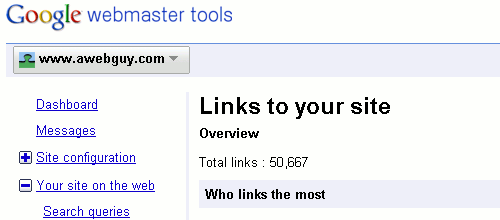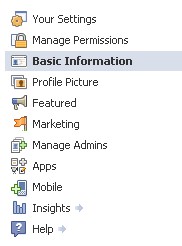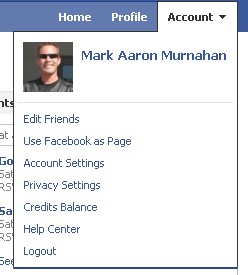
I surely cannot be alone in my thoughts when I reflect upon social media and the rat race it can sometimes represent. There are millions of people out there in our social networks who are trying so hard to be brilliant every day, in their respective industries and job roles. It can be really challenging to find the right balance between burning hot and burning out.
If I am the only person who feels that pressure of striking the perfect balance, I would be really shocked. On the other hand, if I am the only one who will admit it, there is little surprise. People are proud (often far too proud), and they don’t like to admit their weaknesses.
Some of you certainly must relate to the burn that keeps you “hot” in your social media efforts. Just like any fire, it takes fuel to keep it burning. When the fire rages, it takes more fuel. After a while of burning really hot, it is easy to run low on fuel and need to go chop some more wood. That means it is time to find new inspiration!
There should be little wonder why so many people burn out and give up on their efforts. I see it all the time, and I see it across many networks, and with individuals and companies of all sizes. It is really hard to be brilliant on a consistent basis, and it is even harder when you try to balance long-term objectives with short-term frustrations. This is true for individuals and groups alike.
How can you control this “fuel consumption” dilemma and keep your fire burning steadily? I may not have all the answers to your individual burnout challenges, but I can offer you some ideas. First, I would like to direct your attention to the term “Rat Race“ as it is described in Wikipedia. Here is a quote:
The first step to keep your efforts from becoming (or remaining) like this description of a rat race is to be aware of it.
Who Are Those Social Media Experts, Anyway?
I have a strong suspicion that the reason you took all of that “brilliant” advice the world kept shoving at you about social media marketing is somehow related to money, right? They told you to use Facebook and Twitter, they gave you all the good reasons to blog, and urged you to jump on the social media express train. Maybe a few even advised that you be “human” but yet, whatever you do, be brilliant every single day!

Maybe “they” didn’t put it quite in those terms, but that is the writing you saw on the wall. Social media marketing became the clearest answer for helping your business to survive and hopefully thrive while other marketing failed like an untied balloon sailing through the air as it deflates. You have seen how thin newspapers and telephone books are nowadays, right? Perhaps you noticed how many television stations had cutbacks, or how thin your telemarketing cousin is looking these days. All paths seem to lead to social media as an ideal cure for the cancer ravaging your business.
Social media is the one place where “they” tell you that you can do it all yourself and you will save a ton of money because it is “free”. Of course, “free” will never come without a cost. That is another blog article altogether, but let’s be realistic: Social media marketing is not designed to save you money, or save your sanity, but rather to earn you money more effectively. There is a huge difference in saving and earning, and I love how Thomas Jefferson said “The man who stops advertising to save money is like the man who stops the clock to save time.”
Social media marketing done well will often require an even larger investment than those things of the past. One of the steepest costs comes from right there between your ears. It takes a great strategy to achieve great results, and great strategies can be just about challenging enough to put most people on the doorstep of an insane asylum. Whether you hire it out, or you try and do it all yourself, there is a big cost of time and energy, or money.
In a perfect world, success may be simple or it may be free, but you can bet that it will not be both. In either case, the famed social media miracle cure has probably let you down more than once.
Grab Your Social Media Rope
Since you are hip-deep in it now, I want to throw you a rope to help pull you from the ashes and give you an ember to rekindle your efforts.
I will admit that I am not feeling very brilliant today. I am worn out from long hours of work, and we have had a nasty cold running through my family. How else would I be able to reflect on burnout so clearly, yet confused at the same time? Hey, I am human … Imagine that! You are, too, and that means you are full of faults. You have all kinds of lovely faults, and each of them provides opportunities to do better.
If what you are doing is burning you out, it is time to regroup and rekindle. It is time to rethink things, and create new solutions. My example is certainly different from many, because I am a marketing professional. After long days of building upon theories and crafting marketing strategies for everybody else, it is easier to just ignore my own marketing needs. I guess it is why there are so many metaphors about plumbers with leaky pipes, sick doctors, and cobblers with barefoot children. If you are in the marketing field, this should be a cinch for you, but it can be applied to any marketing endeavor.
Grab my rope and pull yourself out of those ashes and let’s reflect on your strategy. Is it outdated for your needs? Do you have more insight to work with today than you did in the past? If so, it is time to redefine and reshape your social media strategy.

Redefine Your Strategy
Why did you ever begin a social media marketing effort? Did you do it to solve short-term objectives and squelch immediate fears of jumping in too late? One of the most tragic things I see with companies is the act of just dipping their toe in, only to find that it is quicksand.
If you take a step back and consider this, you may find that you entered the social media arena with a tactical approach, but without a well-formed strategy. If this is the case, don’t be ashamed of it, and don’t be overwhelmed by it. It is a common mistake, and my experience says that it is the most frequent cause for burnout. I was not kidding or trying to be “Mister Popular” when I wrote “Social Media Tactics Without Social Media Strategy Fails“.
Taking a new look with a fresh set of ideas can make a huge difference. What have you learned along the way, and how can you use that knowledge? It is worth the effort to discover things you may be overlooking or procrastinating.
Measure and Enjoy Your Social Media Successes
I can often share things best by recounting things from my professional work. Real stories are very often my best inspiration and source of that “fuel” to keep me working hard. It is a good way to get a point across and help you to think about how it may relate to your world.
I met a college student on my blog this morning. You see, I have this nice little chat on my blog where I can see what people are reading and engage them in a chat. I saw the article he was reading, and I struck up a conversation. We had a nice 19 minute chat, and I found that he was very interested in learning from my work. I have given a lot of hard lessons and grief to newcomers in my industry, because there is a widely held perception that it is easy. I strongly dislike the type who come into my industry and treat it like a Gold Rush. It is not a “get rich quick” kind of job, and it took me years to earn my first million. On the other hand, I respect the newcomers who have integrity, are willing to work hard, and want to learn. I work hard to help them, and I feel good about doing that.
What? You don’t consider that a success story? It did not pay me a penny, but you can bet that I came away feeling better about my work. It gave me more fuel, because it reminded me that I have a lot to offer, and that I can make a useful impact in somebody’s learning. It reminded me why I love what I do, and why my objectives always follow along behind my purpose … and not the other way around.
Maybe this seems too longsighted, but it is what works in the real world. Anything else is like trying to harvest a crop without sowing any seeds. All you get is dirt!
Restate Your Objectives
Are your objectives honorable? Do you have integrity and honesty? Unless you are representing something despicable and unworthy, it is OK to make your objectives known. Regardless of the stigma which some (usually jealous or unsuccessful) people place on those seeking a benefit from social media, most people won’t hate you for that. What they hate is when you try to harvest a crop without planting any seeds.
If you work hard to provide a value to others, and they appreciate your work, it is fine to ask them for something in return. That may mean asking for the sale, asking for them to subscribe, or many other possibilities. If they don’t like it, they are probably selfish about other things, too. Some misguided people will always want something for nothing. A lot of people will respect you for it, and it could be a big breath of fresh air for your business.
You don’t have to take it as far as I do with stating your objectives and your strategy publicly, but you must at least mark them in your business plan and keep them in your sights. When you have a clear definition of your strategy and how it will help you achieve your goals, it is a lot easier to do what it takes to reach those goals. It will also be much easier on the people you hope will listen to you and take action.
It was perhaps not my most brilliant moment, but I think I said it pretty well in my article “How to Make a Blog Popular: Consider Your Intent!“ This is not just about a blog, either. Your intent will have a lot to do with how people perceive you, and how receptive they are to your brand. Here is a quote from that article:
“The focus of this blog is to help educate people about things which can help them. I like to help people think and create their own ideas. I like to teach people about things which they may find useful. I also like to dispel the many SEO lies which are common in the industry.
When I say that intent is important, here is how I look at it: If my intent was centered around selling something rather than educating and helping people, the direction would be totally different. The intent would show through, and the value to others would be far less.”
When I consider this intent, it is a lot easier to achieve my hopeful outcome. That hopeful outcome is that you will subscribe to my blog, share it on Facebook, Twitter, email, blogs, and scream it at the top of your lungs in a packed office, train station, street, or any other place where there are people. My strategy involves people adapting and sharing my ideas far and wide. Since I only seek a very select group of businesses to provide my services, my strategy is to help others enough that they will help me in return, by getting me in front of my special somebody.
Did you follow that? My strategy is to help enough people that some of them will help me to find my special client … the one I call “The Right One”. Be helpful? Not a bad idea, right? Sure, I am only seeking one good person to see value in my work, and you may be seeking a million of them. Trust me now, or resent me later, but I can tell you that the principle is the same regardless of the scale.
Can you see the parallels in your industry? I hope so, and I hope that this gives you some fuel for thought and keeps your social media bonfire burning for another day.
The strategy almost seems too simple, right? It should seem simple, because then it is manageable and sustainable. If you make things too confusing, or if you don’t have your objectives straight, your strategy will fail. That is a perfect recipe for rat racing and eventual burnout.
What do you have to say about this?
Photo Credits:
Two Rats by Matt Baume via Flickr
Rat & Squirrel by Peter Pearson via Flickr
Rats Drinking Milk by Mandy via Flickr











